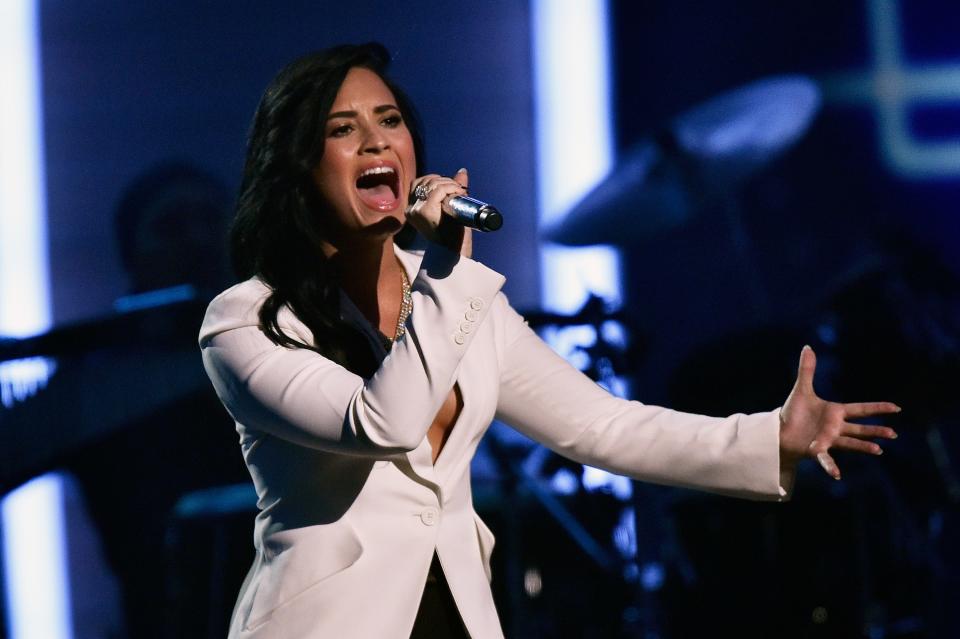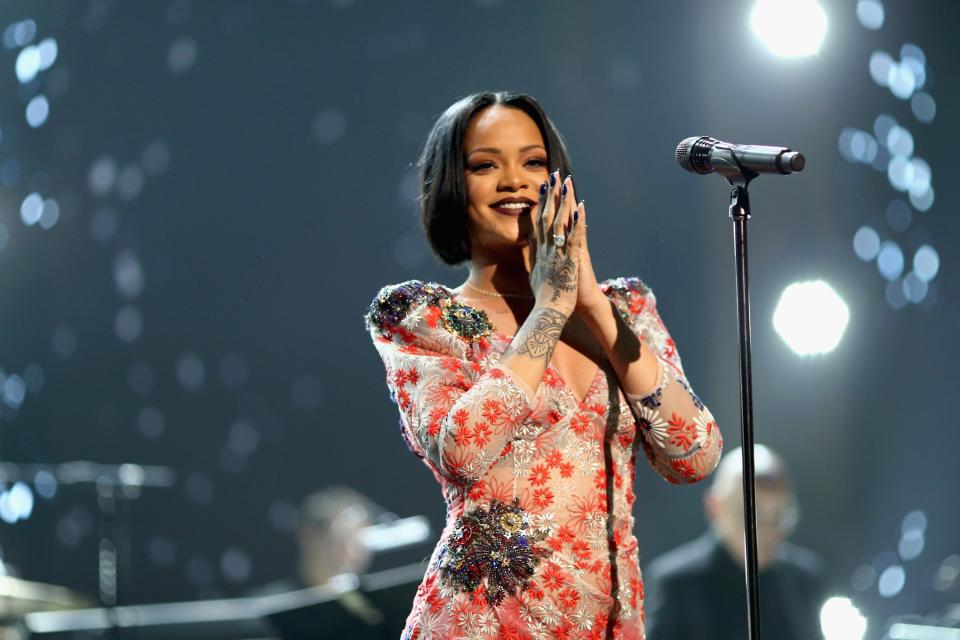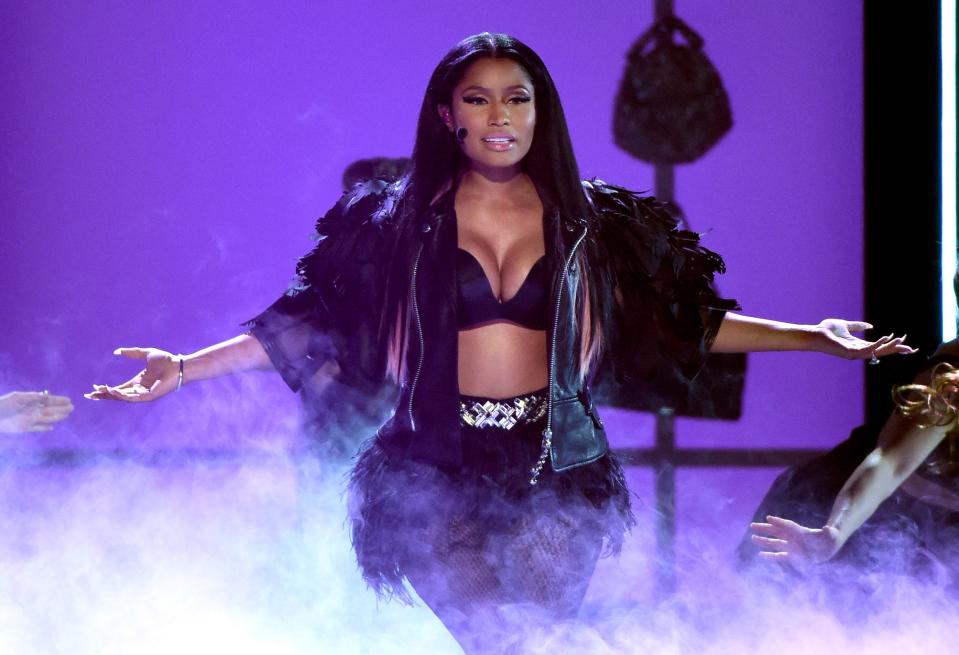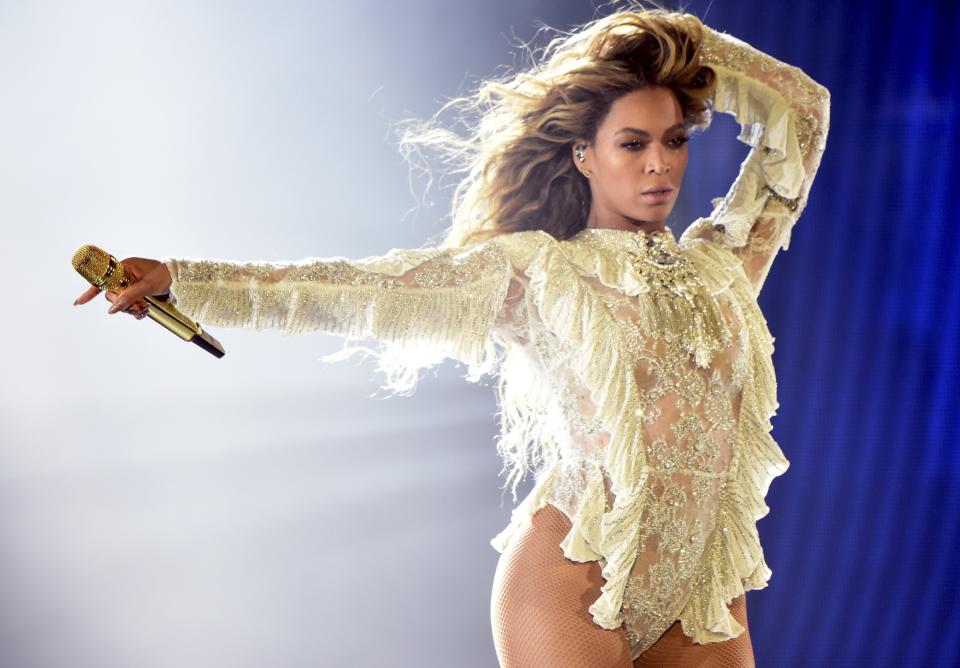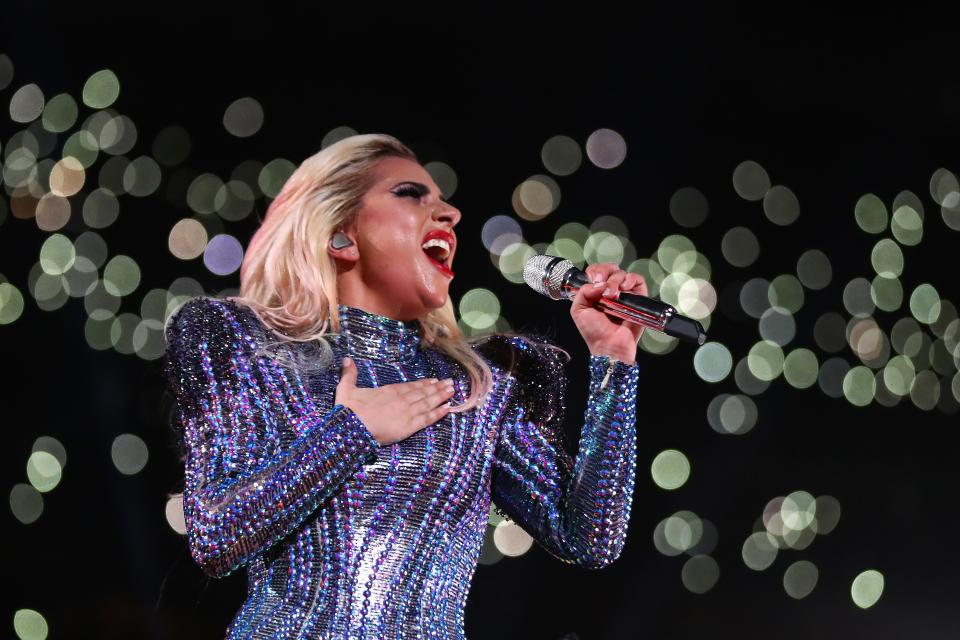10 Ways Female Pop Stars Have Changed the GD World
By Christopher Rosa. Photos: Getty Images.
Pop music has a bad reputation for being shallow, vapid, and mindless—and this goes double for the women who make it. For some reason, this idea still exists that female pop stars are divas who don't add anything substantial to music or our culture. This is a lie, of course: Almost every major female pop star has a hand in the creation and release of their music. They're not puppets! And, contrary to popular belief, they do make wonderful contributions to society in addition to delivering the bops. In fact, a lot of today's most-discussed activist issues—like reproductive rights, civil rights, and LGBTQ rights, to name just a few—would look very different without female pop stars using their platforms to speak out. Culture needs female pop stars just as much as we need other activists and protestors. The accomplishments of these 10 women, below, explain why.
Madonna
Madonna is considered the Queen of Pop for her ever-evolving sound and style, but her influence runs much deeper than that. Madge exploded onto the scene in the puritanical, patriarchal 1980s, which is why her early feminist anthems like "Express Yourself" and "Papa Don't Preach" are so vital. She was quite literally sparking public conversations most people were afraid to have in private. She continued this by taking on sexual politics with "Like a Prayer" and "Erotica"—but perhaps Madonna's greatest social contribution is her early LGBTQ activism. She was discussing and defending homosexuality at a time when the country was predominantly anti-gay. Also incredible: She advocated for HIV/AIDS education and prevention when a large portion of Americans thought it was a taboo "gay disease." Madonna didn't have many people in her corner when she took on these issues, either. She faced several of these battles alone—and the world is a more accepting, open place for it.
Lady Gaga
Lady Gaga was immediately viewed as a gay pop icon when she released the dizzying, flamboyant "Just Dance," but she took things to a new level with her Born This Way era in 2011. Being an ally at rallies wasn't enough for Mother Monster—she wanted to flood the airwaves with messages of LGBTQ empowerment and equality. Enter "Born This Way," the album's whooshing titular single with a message about as subtle as a freight train. Gaga wanted the world to know there is nothing wrong with being LGBTQ—we were born this way. The song alone helped millions of LGBTQ people (myself included) start the path to self-acceptance. Gaga founded the Born This Way Foundation that same year, which took the song's message on the road—literally—to help queer youth in tangible, long-lasting ways. Put your paws up indeed.
Christina Aguilera
Aguilera's Stripped era shocked conservative Americans at first, but it was actually filled with several socially progressive moments that still influence today's music landscape. Aguilera's confident, sexual image ushered in a post-Madonna brand of pop feminism—one where women had agency to wear and say what they want, unapologetically. Her Lil' Kim-assisted ode to dismantling the patriarchy, "Can't Hold Us Down," built on this message, but it was the release of the ballad "Beautiful" that really stopped people in their tracks. Crafted entirely by pop maestro Linda Perry, "Beautiful" hit folks in the feels with its strong message of self-love. The track was embraced by the LGBTQ community at large after its video featured a gender-queer person and two men kissing—a pretty monumental feat given the time. That's why "Beautiful"'s impressive performance on the Billboard Hot 100 (it reached No. 2) and Grammy award are so important: It marked one of the first times an overtly queer song gained mainstream popularity. ("Born This Way" certainly wouldn't have happened without it.) We can thank "Beautiful" for starting many necessary conversations in the United States—it was a watershed moment in gay culture.
Beyoncé
Beyoncé has always been a strong and empowering performer, but her 2013 self-titled album began an exciting chapter for socially-conscious pop. Feminism with a capital F became Beyoncé's main message, which took literal shape at the 2014 MTV Video Music Awards. (If you forget, Bey flashed the word on a giant screen while performing her song "Flawless," which contains a spoken-word monologue from women's rights activist Chimamanda Ngozi Adichie.) It's really awesome when artists as big as Beyoncé choose to get political because they can effect real change. The Beyoncé album is viewed by many as a driving pop cultural force behind the third-wave feminist movement. And Queen B expanded her path of "art as activism" with last year's Lemonade. The record's message was strongly feminist, but it struck a particular chord with black women. "Formation" is widely recognized as an anthem for the Black Lives Matter movement. Simply put, Lemonade thrusted the issues that people of color (especially women of color) face into the zeitgeist in a very impactful way. It was more than an album. It was a battle cry.
Miley Cyrus
When Cyrus stuck out her tongue and twerked at the 2013 MTV Video Music Awards, people didn't know what to think. But the former Disney Channel star knew exactly what she was doing. No, the performance wasn't just a shock-jock stunt: Cyrus was introducing the world to the newest phase of her career—one based on freedom of expression, creativity, and equality. Everything Cyrus has done since the 2013 VMAs fits this brand—from her 420-friendly Instagram posts to her psychedelic record, Miley Cyrus & Her Dead Petz (which she released for free), to, most importantly, her queer activism. Cyrus took a page out of the Lady Gaga handbook and crafted an image so whacky and inclusive that every walk of life felt welcomed to join her party. But Cyrus did more than just create a safe space for LGBTQ kids to hang their freak flags. She matched her pro-love message with a pro-love organization, The Happy Hippie Foundation, which advocates for young, homeless LGBTQ people. Cyrus is giving a voice to what was before a woefully underrepresented group. And you thought she couldn't be tamed back in 2010.
Cher
Besides being perhaps the biggest pop ally to the LGBTQ community, Cher is also a generous humanitarian. In January 2016, the music vet donated more than 180,000 bottles of water to Flint, Michigan in the middle of the city's clean water crisis. (The Flint water crisis is clearly an issue close to Cher's heart because she is starring in a Lifetime movie about the incident—her first acting role since 2010's Burlesque.) She's also an outspoken advocate for feminism. She hit Washington, D.C. in January for the widely successful Women's March, and, if you remember, appeared in a series of hilarious PSAs with Kathy Griffin in 2012 criticizing then-presidential candidate Mitt Romney. Plus, the lead single off her last album was literally called "Woman's World." When in doubt, believe in Cher.
Lil' Kim
Lil' Kim shattered several hip hop glass ceilings in the '90s. Granted, there's so much more work to do, but by becoming arguably the first mainstream female rapper, Lil' Kim established a seat for women at the rap boys' table—several, in fact. Her rise to fame is one of the most important moments in music history. Actually, make that history in general: Lil' Kim's unapologetic, sex-positive attitude gave women—specifically, black women—the strength to embrace their true selves.
Nicki Minaj
And Minaj is now helping black women love their bodies. She's continuing Lil' Kim's legacy of radical hip hop feminism but has her own spin on it. Her hits like "Anaconda" and "Super Bass" are catchy, yes, but they're also inspiring as hell for women of color—giving them freedom to embrace their sexualities and every inch of themselves. In a world that vilifies brown and black bodies, Minaj's messages of overt self-confidence are not just powerful—they're necessary.
Rihanna
Rihanna has been an activist since starting her music career, but her work with HIV/AIDS education and prevention is particularly important. In December 2016, she and Prince Harry were publicly screened for HIV in an effort to de-stigmatize the disease and encourage others to get tested, too. Before that, the "Diamonds" singer partnered with MAC to raise money for HIV/AIDS education. Rihanna's continued efforts to help this one cause are proof she isn't just a fair-weather humanitarian. She actually cares.
Demi Lovato
Lovato has been very open about her personal struggles. (At 18, the "Confident" singer entered rehab for several issues, including self-harm, an eating disorder, and depression. She was diagnosed with bipolar disorder during her treatment.) In July 2016, Lovato actually spoke about the realities of living with mental illness at the Democratic National Convention. Her transparency is really helping to eliminate the misconceptions around mental illness, which is an incredible thing.
This story originally appeared on Glamour.
More from Glamour:
What's That Salad the Kardashians Are Always Eating on Their Show?
A Look at the Emmy It Girls of the Past 20 Years: Taraji P. Henson, Tina Fey, and More
Major Skin Mistakes You're Making in Your 20s, 30s, and 40s
